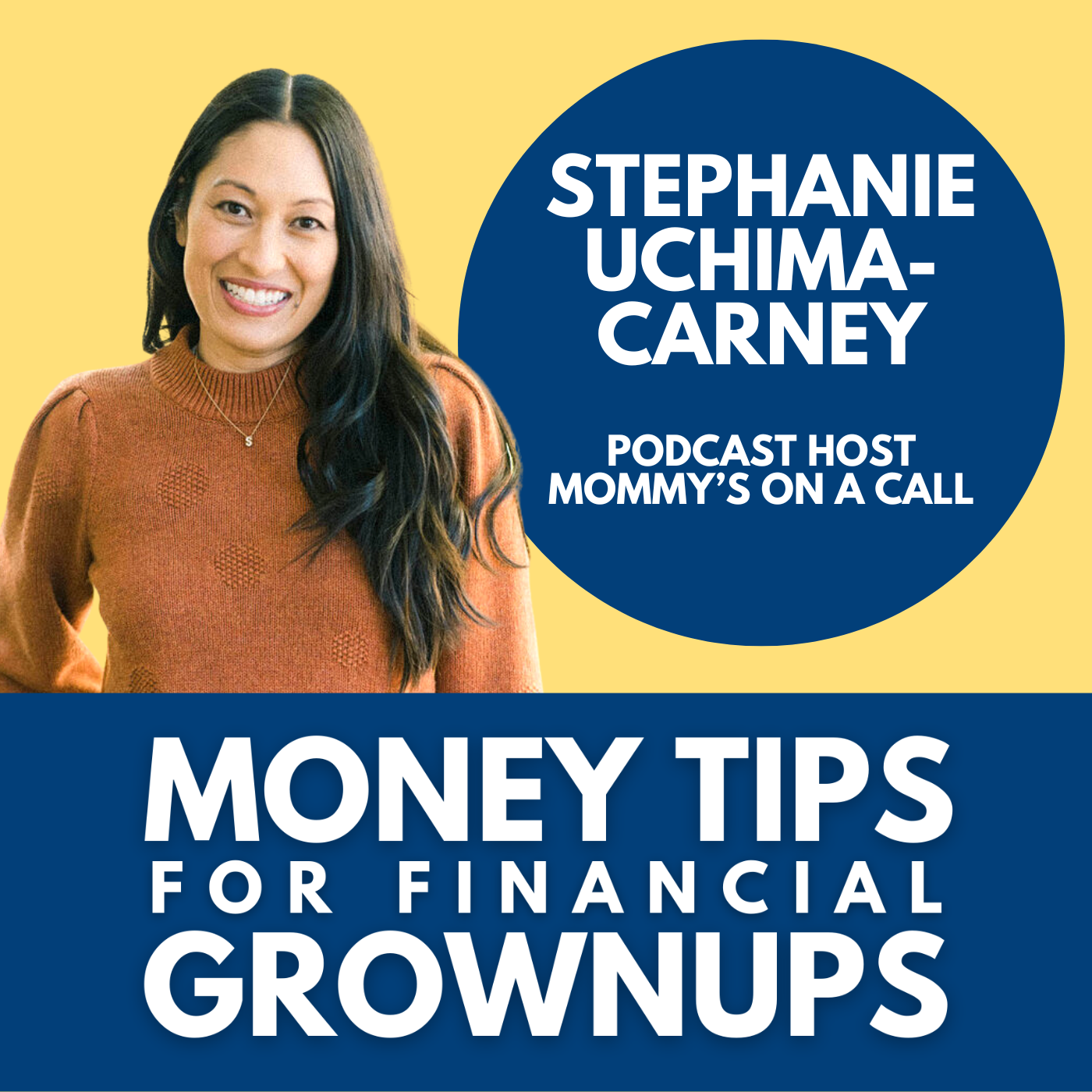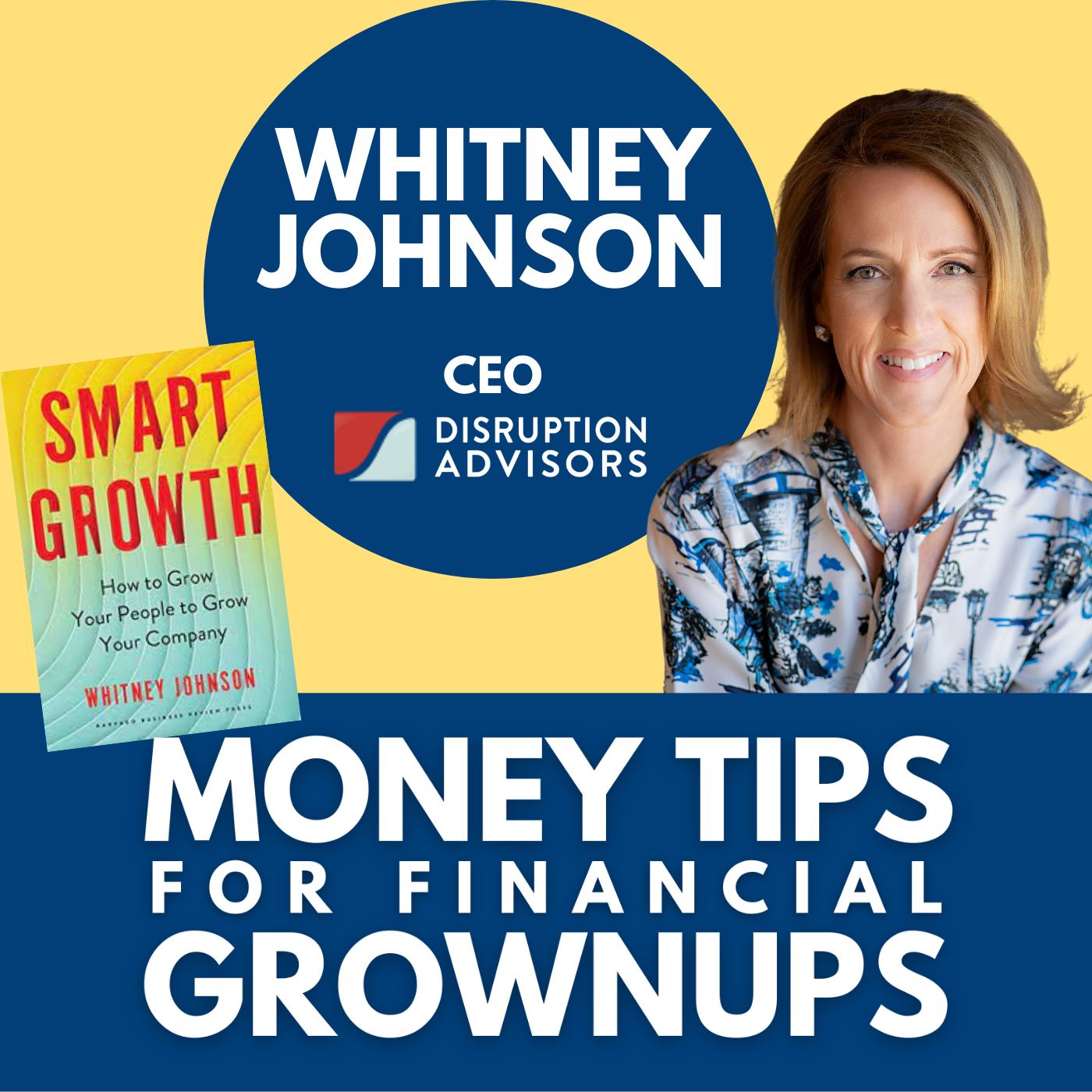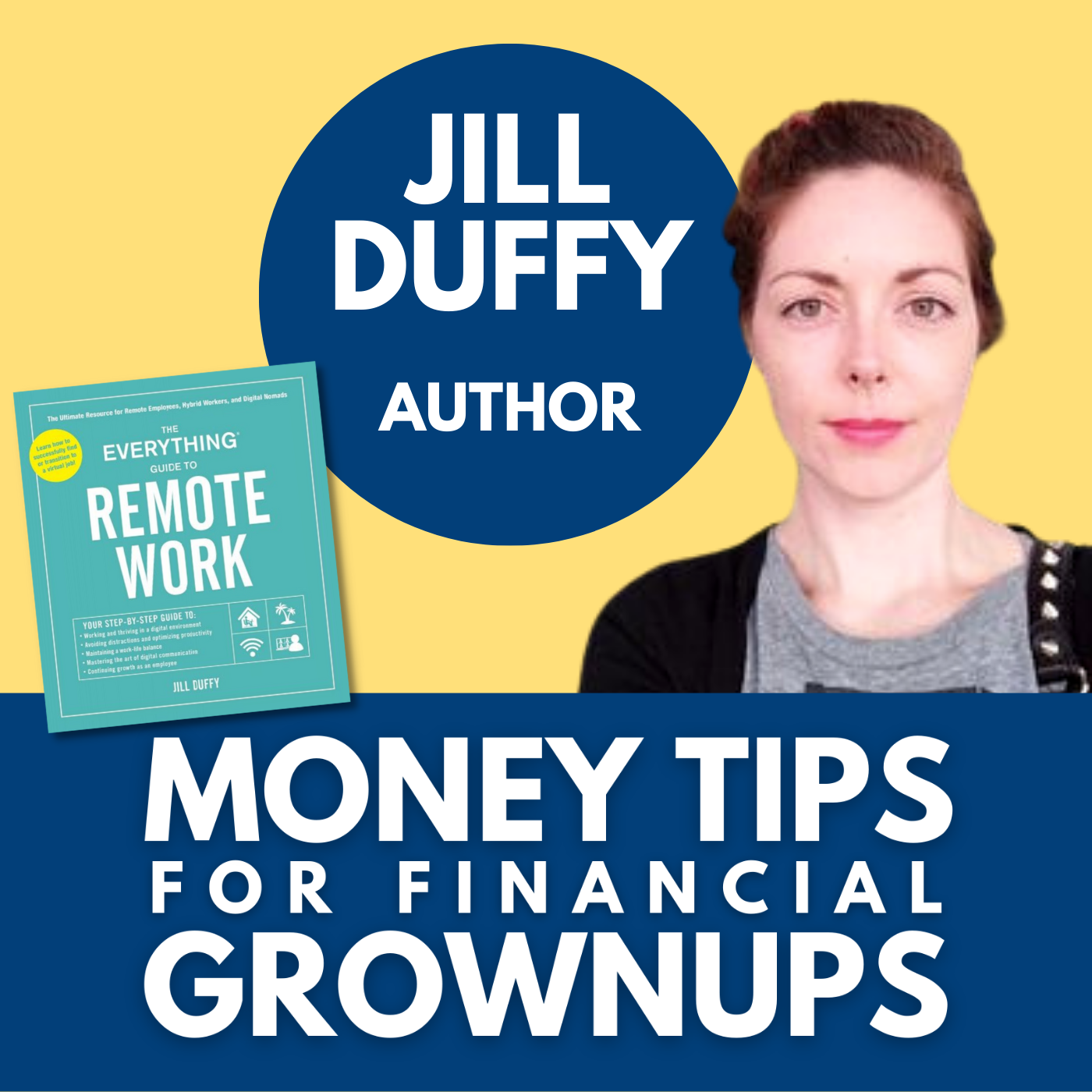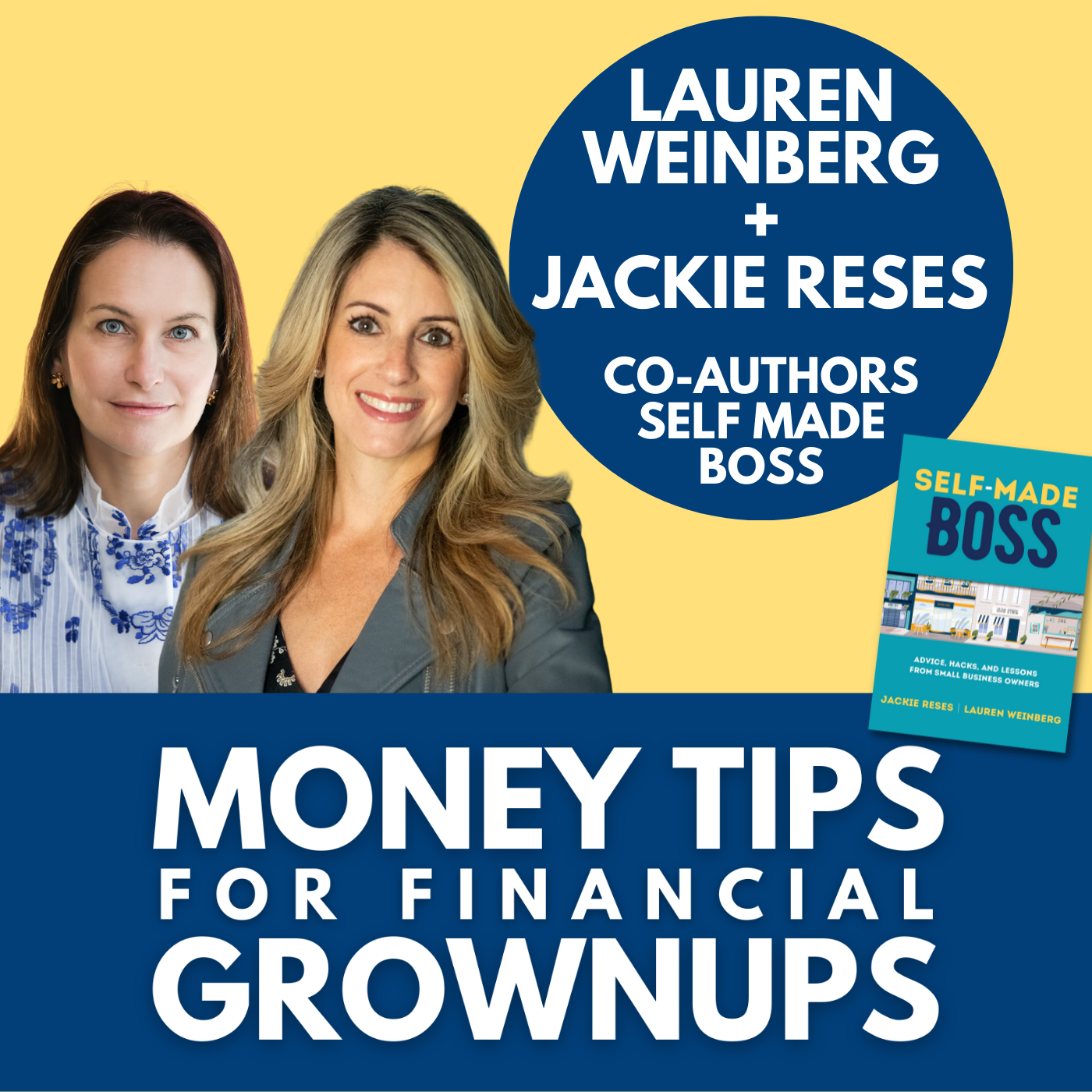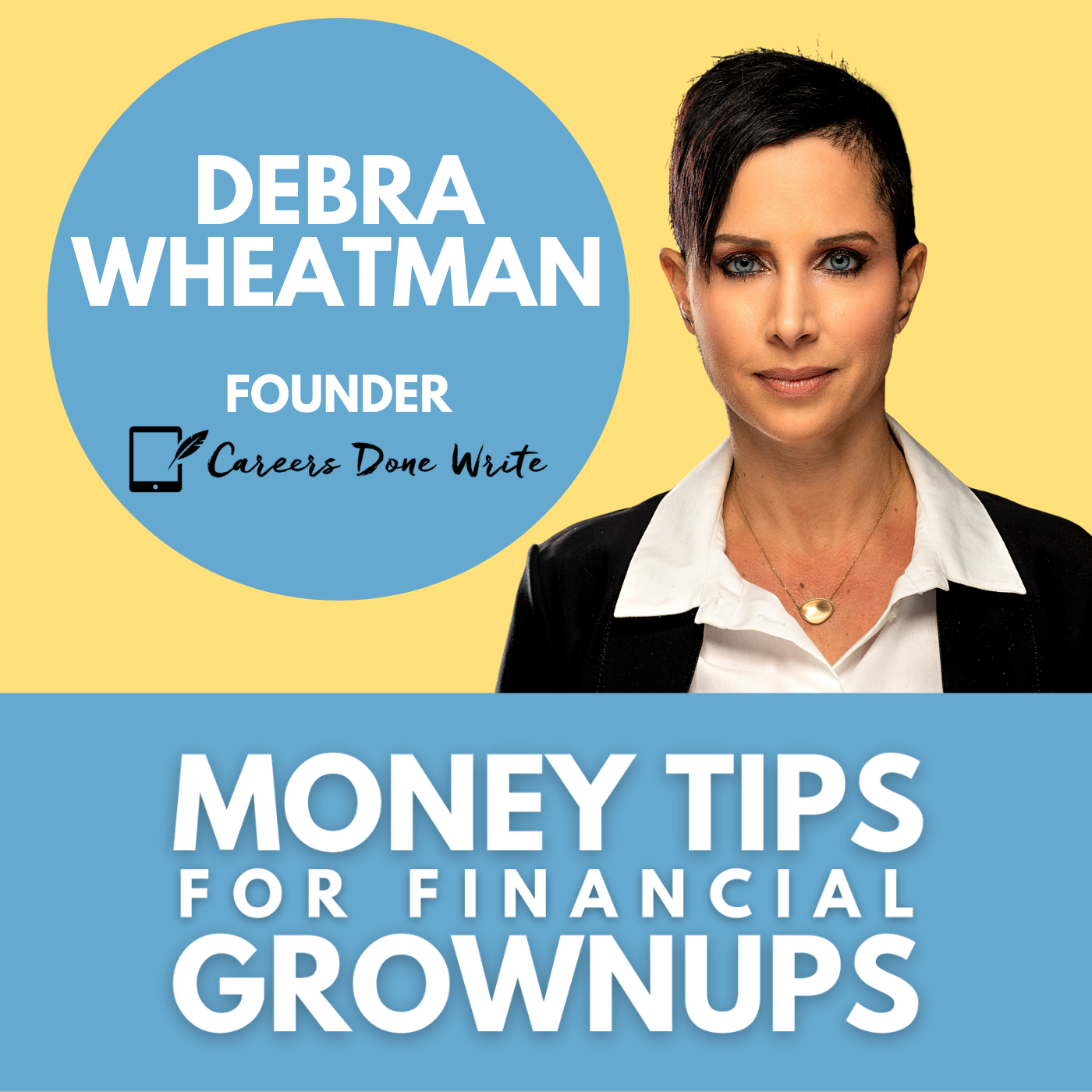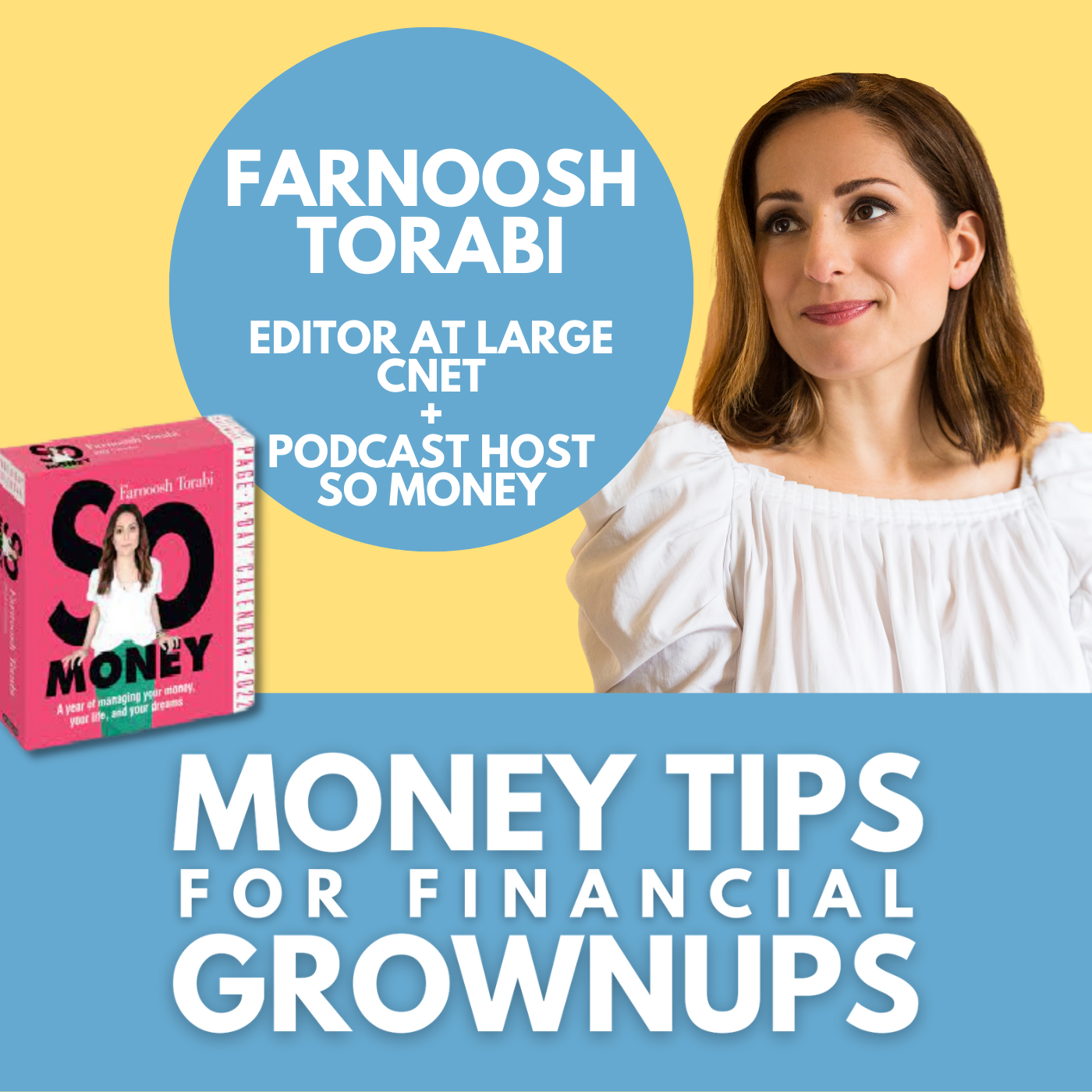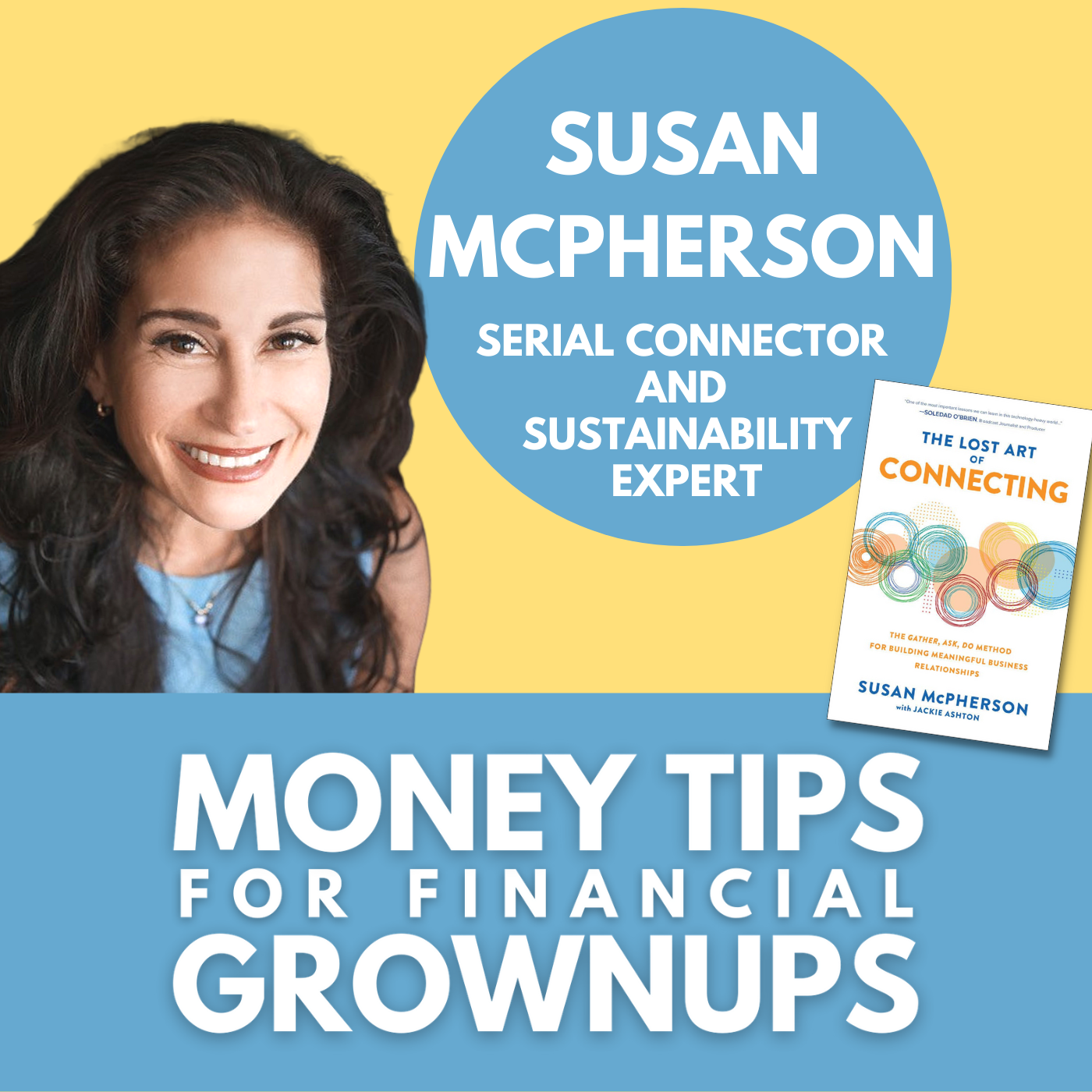Talking Fintok, Robinhood, crypto, meme stocks and getting social with your investing habits with the founders of community investing platform Alinea
Follow Name!
Instagram - @alineainvest
TikTok - @alineainvest
Website - www.alinea-invest.com
Follow Bobbi!
Instagram - @bobbirebell1
Twitter- @bobbirebell
LinkedIn- Bobbi Rebell
TikTok - @bobbirebell
Website- http://www.bobbirebell.com
Did you enjoy the show? We would love your support!
Leave a review on Apple Podcasts or wherever you listen to podcasts. We love reading what our listeners think of the show!
Subscribe to the podcast, so you never miss an episode.
Share the podcast with your family, friends, and co-workers.
Tag me on Instagram @bobbirebell1 and you’ll automatically be entered to win books by our favorite guests and merch from our Grownup Gear shop.
Full Transcript:
Bobbi Rebell:
Hey, grown-up friends, a big thank you to so many of you that have already bought my new book, Launching Financial Grownups: Live Your Richest Life by Helping Your (Almost) Adult Kids Become Everyday Money Smart. This book was not easy to write, because I had to get honest with myself about what was working with my teen and young adult kids, and what was not working. And I also had to be prepared to share it with all of you. So, first of all, thank you for your support and your wonderful responses to it. There's definitely some things in there that you may not have been expecting to hear. By the way, I got a lot of help from my money expert friends, and also financial therapists and parenting experts.
Bobbi Rebell:
I am really happy with how Launching Financial Grownups came out, even though it really was hard to be, like I said, that honest. And it was a lot of work, but I really loved doing it. And I'm really happy with how it came out. On that note, if you have not already, please pick up a copy of Launching Financial Grownups today. After you do, please share it on social media. Please leave a review on Amazon. Those reviews are super-important, because the algorithm picks up on them and that can make the book a lot more visible to more people. So I truly appreciate it. And I really also appreciate all of your support.
Anam Lakhani:
Investing is such a social habit. I think that's what's the most underrated thing. It is something you can do single-player mode, but the reason we're seeing this phenomenon FinTok, which is financial TikTok. And really finance coming in to social media, is because people want to talk about it.
Bobbi Rebell:
You're listening to Money Tips for Financial Grownups. With me, certified financial planner, Bobbi Rebell. Author of Launching Financial Grownups. Because you know what? Grown-up life is really hard, but together, we got this. Okay, my friends. Who here has an investing playlist? You might be inspired to put one together and maybe get some friends into it as well after listening to this episode. Eve Halimi and Anam Lakhani founded Alinea with a focus on portfolios, which they call playlists. Their app is all about community and education, right down to the much more calming color palette that they have, compared to the jarring bright reds and greens that we see on more of the old-school investing apps. In our interview, the Alinea founders share how they came up with the ideas behind the app that led to them raising a couple million dollars right out of the gate.
Bobbi Rebell:
And also, some unique investing tips to get you started or give you a few new ideas to upgrade your investing playlist, AKA portfolio. One highlight to listen for in our interview, their reference to Warren Buffett and how his ideas apply more than ever to today's investor and to the Alinea community. We also get their thoughts on the crypto market, and how to approach that these days as well. No worries as usual about taking notes, we'll have the full transcript for you with the show notes. Here are Alinea founders, Eve Halimi, and Anam Lakhani. Eve Halimi and Anam Lakhani, you are financial grownups. Welcome to the podcast.
Anam Lakhani:
Thank you for having us. We're excited to be here.
Bobbi Rebell:
All right. Before we get started, I forgot to tell you guys this. Whenever we have two guests, I do have each person say hello and their name, so our listeners can tell who is talking at each time. So Eve, say hello.
Eve Halimi:
Hello.
Bobbi Rebell:
That was Eve. All right. Anam, say hello.
Anam Lakhani:
Hello.
Bobbi Rebell:
Congratulations on the launch of Alinea. You guys are 25 years old. You're getting a ton of press coverage already. I love this Business Insider headline, the Gen Z founders of Alinea. You raised $2.1 million for your anti-Robin Hood investing app. First of all, do you agree with the headline that you are an anti-Robin Hood investing app? And then tell us more about that. The whole $2 million thing.
Anam Lakhani:
A hundred percent. I think more than anti-Robin Hood, we're anti-day trading. We're anti-having just exclusivity within the investing and financial world. And with Alinea, we're really hoping to bring in a larger demographic, a more inclusive and younger demographic, to the financial world so they can start achieving financial independence.
Bobbi Rebell:
And Eve, you guys are so young, and you're both women. We hear so much about how much funding goes to men. Certainly sometimes more seasoned men. How did you guys raise 2 million at this age? Because so many people have aspirational, entrepreneurial ideas, and it's not easy.
Eve Halimi:
Yeah, it was definitely difficult. It was a lot of work, but I mean, when you're so passionate about something and you are so determined and you move fast, you will find the right investors who will back you.
Bobbi Rebell:
Tell us more.
Eve Halimi:
We went through Y Combinator. So applying through YC, getting in, which is an incredibly competitive incubator, puts you at an edge and gives you an edge, essentially, when you're fundraising. So investors know you have a stamp of credibility at that time and at that point, which is very helpful for a young entrepreneur.
Bobbi Rebell:
And Anam, how did you guys even get this idea and come together with it? Were you watching apps like Robin Hood? And I don't mean to call them out. I'm just alluding to that Business Insider headline.
Eve Halimi:
We can call them out. We can call them out.
Bobbi Rebell:
Okay, you guys do that.
Anam Lakhani:
It's a great story. So we had come together our fall semester of senior year, and we had returned from these internships on Wall Street. We were both studying economics, and there was this big elephant in the room. We didn't know how to invest our own money. We saw this problem with our friends across both genders, honestly. There was definitely a bit of a confidence gap between those two genders, but we saw that there's this huge problem. And it really fundamentally boils down to two things. It's community and education. So there's a lack of community. If you don't know where to start, investing is such a social habit.
Anam Lakhani:
I think that's the most underrated thing. It is something you can do single player mode. But the reason we're seeing this phenomenon, FinTok, which is financial TikTok, and really finance coming into social media is because people want to talk about it. And they always have. And the second component is education. Only 14 states in the United States mandate personal finance classes in high school. And even being at Columbia University, studying economics, we still didn't have that personal finance knowledge. So those were two things we wanted to tackle to really make investing more inclusive and accessible.
Bobbi Rebell:
One thing I noticed is that even during the pandemic, people were craving that social interaction. There was a lot of discussion of stocks, like meme stocks on places like Reddit and obviously TikTok, with FinTok and MoneyTok. People are craving that social interaction, but it can also be dangerous. So it's interesting that you guys have a place where maybe there could be more vetted conversations with people that are not necessarily, well, sometimes you don't know what people's motives are. But there's a lot of people that got sucked into a gamification of investing, rather than having your peers as a support system in the way that you set up the app. And obviously, I am alluding to the gamification that we see in places like Robin Hood. Can you talk a little bit about the way that your app, that Alinea is set up, and how you avoid gamification and yet support community?
Anam Lakhani:
We really think about it as this long-term journey you're on. It's like your fitness journey. If you're going to the gym, you have a gym buddy, you're talking to your friends about it. You have a community where you often go to, and that's so prevalent with fitness. And we wanted to really foster and create this community where it's not just about making the next buck as quickly as possible, but really being consistent and staying on this path. And so everything from the design of the app, to our messaging, to really our values as a brand and a community boil down to that. This is not something that you're going to make a quick buck on, but really to have people close to you for the long ride.
Eve Halimi:
Unlike other investing apps, we never really focus on the single stocks and single stock mentality. We always focused on portfolios and ETFs, which we renamed as playlists, investing playlists to make them more accessible. And we also never really leaned into the red and the greens, the really intense colors that make you panic. We kept pastel colors and more neutral colors.
Bobbi Rebell:
I love that, because especially with the stock market as rough as it has been for so many people, and really many people certainly, and Gen Z have not in their lifetime, seen a bear market in their experience like we see now. I think calming colors is so important. Those subtle touches. And I do love the idea of a playlist, because it does make it so much more accessible. And it also makes it something that you want to talk about in a positive sense, not in a sense of panic or a braggy sense. Because what I would overhear, and I'm dating myself here, but among my young adult children in the pandemic was, "Oh my gosh, my friend bought shares of Hertz and of AMC, and they're making so much money. Maybe I should be buying that now too." And it was a FOMO mentality. This is very different, right?
Anam Lakhani:
A hundred percent. I think from the get-go, we really push people to invest in ideas and what they believe in, whether that's a cause or an industry. And when you frame it that way, the conversation becomes a lot different. You are literally invested, as opposed to making the next big buck on AMC or GameStop. Because it truly aligns with your identity. And I think what the financial world hasn't seen is these elements of creativity and authenticity come into their own personal finances. And that's what we're really trying to do at Alinea.
Bobbi Rebell:
On that note, you did bring some investing tips for our financial grownups. So let's just go through them. You have three main ones, and then something I want to send people to on your app that I think will be really great. So the first tip has to do with spreading the love a little bit, right?
Anam Lakhani:
Hundred percent. This is a journey, it's a long-term journey. So bring your friends into the conversation, talk to them about it. I started investing because of Eve. And we would always have conversations, and she would suggest investments to me. So it's really important to have your friends along for the ride, not only to just be more knowledgeable, but also have that motivation and support.
Bobbi Rebell:
How do you start a conversation with friends about investing, especially when people have different resources to invest different stages of their life, depending on what's going on? There could be a wide variety at your age, or at any age, frankly.
Eve Halimi:
I think the first conversation that starts with investing money is where do I start? What do I even start with? I don't know how much to invest and I don't know what to invest in. And that's where friends and a community is really helpful. Because you're all alone with all these questions at the beginning, with no support system.
Bobbi Rebell:
And then you obviously want to supplement it with trusted sources. And by the way, Alinea does have a ton of editorial content. And that's really important, because not all of your friends will be as knowledgeable as they think they are. And I guess I'm putting that kindly. There are people that sometimes do get caught up in all the chit chat and maybe believe that they're very well-intentioned, but they may not have the best advice. So always, of course, be true to yourself. Your goals may be very different from your friends, and your resources may be very different. So you don't want to stretch yourself too far. Another thing is to diversify. So tell us about that second tip.
Eve Halimi:
Yeah. We're big fans of Warren Buffett at Alinea. So as Warren Buffett advises new investors is to start with the S&P 500. And that's the number one investing tip we give to new users getting on the app, because you can start investing in the S&P with as little as a dollar. It's a great way to diversify your in investments and to spread your first initial investment across the top 500 US companies.
Anam Lakhani:
A hundred percent. I mean, diversification, it's key to Alinea. We built Alinea so you don't have to worry about, am I picking the right company? Because there's no such thing as the right company. It's about making sure that you're investing, based on your identity and causes and industries you truly care about, and you think that are going to succeed over the next five to 10 years.
Bobbi Rebell:
And your third investing tip has to do with really making it a habit, investing regularly.
Anam Lakhani:
Yeah. Yeah. I mean, it's important.
Eve Halimi:
Dollar cost averaging is a strategy we all employ here. Recurring investments is one that we opt in all the time, because timing the market is not as great as time in the market.
Anam Lakhani:
Yeah. A hundred percent. Just investing very, it is a habit. It's like, you can't go to the gym once. You can't eat a salad once or twice a year. That's not enough, and you're not going to see the best results that way. And so really making it consistently a habit. I think people are always surprised by how much further a little amount can go if you're regular about it. And it's just not about throwing chunks in when you feel like it's the right time. It also really alleviates the pressure when you're doing it regularly.
Bobbi Rebell:
Totally. Yes. So I want to ask you guys before I let you go, tell me your thoughts on the crypto market. Because that's something where a lot of people had FOMO, and then finally jumped in, only to see the value of their crypto go down. And in some cases, depending where it was kept, really not even have access to it to even liquidate if they wanted to. What is your take on crypto? What is your advice to people who have invested in crypto, or are interested in the market in general?
Anam Lakhani:
This is a perfect example of why diversifying your investment is so important. It's totally okay. I'm a crypto investor and I have a little bit of money there, but it's also important to have your money in other places as well, like stocks or bonds. And making sure you have that diversification. If you have invested in crypto, I think as an investor, you need to ask yourself if your thesis truly stands true to you. If you are a believer in the technology and what's behind it, definitely don't just panic and sell because you're seeing other people doing that. Crypto's a newer asset, and the cyclicality and volatility of it is much higher because of that.
Eve Halimi:
But also, I will say, we are seeing more and more correlations between the equity space and the crypto space. And in my vision of things, I do think the crypto space, because it's gotten so affected in the past few months, is going to get less affected as compared to the equity space. And I will say, do not invest in a cryptocurrency without reading the white paper without doing your research. It's very important that you understand the tech behind it, and you understand the value proposition of it.
Bobbi Rebell:
And that's interesting. I love that you guys said that, because it really is true. People do want to take shortcuts. They do want to just get a tip from, whether it's TikTok or Reddit and so on. What's your warning to them, to people that just sort of, we value our peers' advice. That was your first tip, but that doesn't mean you don't also do separate homework. Some of which can be really hard. It's not easy to just read all the little fine print, Eve. It's intimidating.
Eve Halimi:
That is true. But I think there's a ton of resources out there. It doesn't take too long to do some quick Google searches and to find, especially we have a ton of resources on our blog, on our website, about crypto. I believe that you shouldn't be putting in money into a cryptocurrency or into the markets in general without doing some kind of research.
Anam Lakhani:
And it's also about staying true to yourself. Why are you doing this? Why are you investing in that? Do you really believe that this is something that you believe is going to increase in value? So having that personal thesis as well, you see a lot of professional investors have a thesis, and it's important to have that personal thesis as you go along this journey.
Bobbi Rebell:
I love that. Just tell me a little bit more about the concept of a personal thesis when it comes to investing.
Anam Lakhani:
I was talking to one of our community members and he said, he's like, "I'm long FinTech. I truly believe that FinTech, I know it's crashing and sinking and tumbling, but I'm long FinTech. I believe in the industry. And I know it's going to come up." And I was so impressed, because this individual has a personal thesis. So it's important to have that just so again, takes the pressure off, and you're remaining true to yourself and thinking with that thesis.
Bobbi Rebell:
Excellent. You guys have amazing resources on Alinea, one of which is a quiz. Tell me a little bit about that.
Anam Lakhani:
Yeah. So I mean, one of the pain points we saw is our community members just didn't know where to start investing, or what to invest in. And so we thought, let's make this a little bit easier. And we developed a quiz in-house that creates a playlist for you, based on your interest, risks and company you're excited about.
Eve Halimi:
And a playlist, just to recap, is a mini-portfolio, essentially, a mini-baskets of investments that can be stocks, ETFs, crypto, and bonds. We really help you based on what your risk outlook is, what's the investing space, and your interests are to construct a portfolio from the get-go.
Bobbi Rebell:
You guys are great. Thank you for joining me. Tell us more about where people can find not just Alinea, but also you guys on social and be in touch.
Eve Halimi:
Our website is Alinea-invest.com, and there you'll find all our socials. We're Alinea Invest on most of our social platforms, on TikTok, on Instagram and so on. We also have personal accounts for Eve Halimi and Anam Lakhani that you can follow, where we're constantly trying to provide more and more investment education.
Bobbi Rebell:
Thank you both.
Anam Lakhani:
Thank you.
Bobbi Rebell:
I think it was interesting to note that the ladies are seeing more correlation between the crypto space and the equity space. But also take note of their warning to make sure if you do invest in crypto, you must read the white paper and do your research. You. On you, not on your friends, on you. So you understand the technology and the value proposition. Don't just go on a tip from a friend from Reddit or from FinTech. You need to do the work. It's your investment. I would love to hear your thoughts on Alinea and other new investing apps that are becoming available and taking a different approach. Are you open to these new platforms? Are you looking for them? What do you want? What new features appeal most to you? Do you have a playlist that you want to share? DM me on Instagram at BobbiRebell1 and on Twitter at Bobbi Rebell. And please check out my new TikTok channel.
Bobbi Rebell:
I am trying my best. I would love all of your support. My TikTok channel is actually a finalist for a Plutus Award. So I'm so excited about that. You can check it out just under my name, Bobbi Rebell on TikTok. And if you are not already subscribed or a follower of this podcast, please click that button and consider writing a review on Apple Podcasts or wherever you listen. I not only appreciate the support, I really need it. So thank you in advance for that. It means a lot. Check out Alinea's quiz, by the way, that the ladies mentioned. That can help you create your first playlist, AKA a mini-portfolio for you. We're going to leave a link to that in the show notes, along with all of their social handles. And big thanks to Eve Halimi and Anam Lakhani of Alinea for helping us all be financial grownups.
Bobbi Rebell:
Money Tips for Financial Grownups is a production of BRK Media, LLC. Editing and production by Steve Stewart, guest coordination, content creation, social media support and show notes by Ashley Wall. You can find the podcast show notes, which include links to resources mentioned in the show as well as show transcripts, by going to my website, BobbiRebell.com. You can also find an incredible library of hundreds of previous episodes to help you on your journey as a financial grownup. The podcast and tons of complimentary resources associated with the podcast is brought to you for free, but I need to have your support in return. Here's how you can do that. First, connect with me on social media at BobbiRebell1 on Instagram and Bobbi Rebell on both Twitter and on Clubhouse, where you can join my Money Tips for Grownups Club. Second, share this podcast on social media and tag me so I can thank you.
Bobbi Rebell:
You can also leave a review on Apple Podcasts. Reading each one means the world to me, you know what? It really motivates others to subscribe. You can also support our merch shop, grownupgear.com by picking up fun gifts for your grownup friends and treating yourself as well. And most of all, help your friends on their journey to being financial grownups by encouraging them to subscribe to the podcast. Together, we got this. Thank you for your time and for the kind words so many of you send my way. See you next time. And thank you for supporting Money Tips for Financial Grownups.







